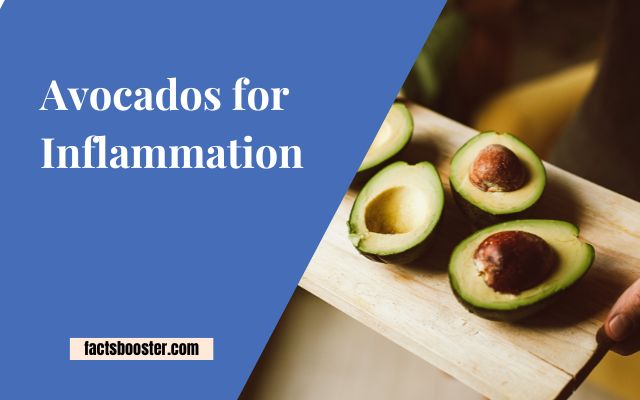Have you ever wondered if there’s a delicious way to fight inflammation? Enter avocados, the creamy, versatile fruit that’s taken the health food world by storm. Not only do they offer a myriad of nutrients, but they’ve also been entangled in discussions around anti-inflammation.
With the rise of avocados as a sought-after health food, it’s time to peel back the layers and investigate whether avocados truly have the power to reduce inflammation, setting the stage for a deep dive into avocados for inflammation.
Key Takeaways:
- Exploring avocados’ link to inflammation reduction: A look into the potential anti-inflammatory benefits of avocados.
- Understanding chronic vs. acute inflammation: Distinguishing between different types of inflammation and the role of diet in managing them.
- Avocados in the spotlight: The importance of avocados in the current health food scene and their nutritional content.
What is Inflammation
At its core, inflammation is your body’s natural way of protecting itself when you’re injured or sick. It’s how your body signals the immune system to heal and repair damaged tissue, as well as defend itself against foreign invaders, like viruses and bacteria. But not all inflammation is helpful.
When it becomes chronic, lingering long after the threat has passed, it can turn against your body, contributing to diseases such as heart disease, diabetes, and arthritis. This is where anti-inflammation foods, like avocados, come into play.
Rich in anti-inflammatory properties, foods like avocados can help fight inflammation and potentially reduce the risk of inflammation-related illnesses. Understanding the pivotal role of diet in managing inflammation is thus crucial for maintaining overall health and well-being.
The Rise of Avocados in Health Circles

As you wander through the health food scene lately, it’s clear that avocados have taken the spotlight as a superstar ingredient. It’s not just their creamy texture and versatile flavor that have captured our hearts and palates; it’s the powerhouse of nutrients they pack.
Rich in heart-healthy monounsaturated fats, fiber, potassium, and a myriad of vitamins, avocados are lauded for their potential to fight inflammation and promote overall wellness.
This shift towards avocados and other anti-inflammation foods reflects a broader trend: we’re increasingly reaching for what’s on our plates to not just feed us, but to heal us. In this era of wellness, avocados have emerged not just as a food, but as a symbol of a health-conscious lifestyle striving to reduce inflammation and boost well-being.
Read more:
Avocados for Inflammation: The Study
When diving into the world of avocados for inflammation, it’s crucial to spotlight the Multi-Ethnic Study of Atherosclerosis (MESA) that aimed to find a link between avocado consumption and inflammation markers.
Despite avocados being hailed as one of the ultimate anti-inflammation foods, this study threw us a curveball. Among the diverse participants, ranging in ethnicity and lifestyle, the findings were unexpected: there was no significant association between the regular munching on this creamy, green fruit and the levels of inflammatory markers.
That’s right, whether you’re a rare or a heavy avocado eater, the study suggests that your avocado consumption habits aren’t directly fighting inflammation in the way we might have hoped.
But, before you rethink your guacamole game plan, it’s essential to note that these findings simply highlight the complex relationship between diet and inflammation, signaling the need for further, more nuanced research.
Nutrition of Avocados
When you slice into an avocado, you’re not just uncovering a tasty addition to your meals; you’re also tapping into a powerhouse of nutrients that might help fight inflammation.
At the heart of avocados’ anti-inflammation credentials are omega-3 fatty acids, known for their potential to reduce inflammation. Paired with a generous amount of vitamin E, avocados could bolster your body’s defense against oxidative stress, another provocateur of inflammation.
Then there’s the fiber, plentiful in avocados, which plays its part in promoting a healthy gut — a crucial aspect of managing inflammation.
But before you stock your kitchen with an orchard’s worth of avocados, it’s vital to remember that reducing inflammation isn’t as straightforward as eating any singular superfood.
The MESA study highlighted this complexity, showing that while avocados have the theoretical chops to combat inflammation, the real-world evidence is still a mixed bag. This serves as a reminder that when it comes to the fight against inflammation, avocados can be part of a balanced diet but are not the sole solution.
Comparing Short-term vs. Long-term Effects
You might find yourself scratching your head at the different outcomes between short-term clinical trials and long-term observational studies. Here’s the scoop: short-term trials often spotlight the immediate anti-inflammatory effects avocados might have.
For instance, consuming avocados has shown a potential to reduce inflammation markers shortly after intake. Think of it as a quick glimpse into the fight against inflammation, offering a hopeful view that avocados could be powerful anti-inflammation foods.
However, when we shift gears to long-term studies, like the noted MESA investigation, the waters get a tad murkier. Over extended periods, pinpointing the direct impact of avocados on inflammation markers proves complex.
Many variables can influence one’s inflammatory status, making it challenging to attribute changes solely to avocado consumption. This differentiation underscores the importance of continuous research to fully understand how avocados and other potentially anti-inflammatory foods might play a role in managing chronic inflammation over the long haul.
Factors Influencing Inflammation and Nutrition
Let’s not overlook the complex mosaic that paints the picture of our health, especially when it comes to battling inflammation. Sure, incorporating avocados and other anti-inflammation foods into your routine can be a step in the right direction.
But, here’s the twist – it’s not just about what you eat. Genetics, lifestyle choices, and even the air we breathe play crucial roles in influencing inflammation levels in our bodies.
Think of your body as a finely tuned machine, where every part needs to work in harmony. You could be feeding it the best fuel in the world, but if other aspects are out of sync, your inflammation-fighting efforts might not yield the results you’re hoping for. That’s why it’s essential to consider the bigger picture.
Embracing a balanced diet, rich in foods that fight inflammation like avocados, while also managing stress, getting enough sleep, and reducing exposure to environmental toxins, creates a solid foundation for maintaining low inflammation levels.
Remember, it’s about the full spectrum of choices you make every day. So, cheers to a holistic approach to health that puts you in the driver’s seat, navigating through life with wellness as your compass.
Avocado Consumption Guidelines
So, you’re interested in leveraging the potential of avocados to fight inflammation in your diet. While incorporating these creamy, nutrient-packed fruits can be a delicious way to enhance your meals, it’s vital to remember avocados aren’t a magic solution to reduce inflammation on their own.
Think of them as part of the bigger picture in your quest toward an anti-inflammation lifestyle.
Diversity is your best friend when planning your meals. Yes, avocados are jam-packed with beneficial nutrients known to support health, including anti-inflammatory compounds. However, relying solely on avocados and expecting significant health changes is like wearing only one shoe. A balanced diet rich in fruits, vegetables, whole grains, and lean proteins, is key to managing inflammation effectively.
Looking to make a swap for the better? Start by replacing less healthy fats in your diet with avocado. Consider using mashed avocado as a substitute for mayonnaise or butter in sandwiches and spreads.
This simple switch not only adds a depth of flavor but also contributes to your intake of anti-inflammation foods without overdoing it.
Remember, the goal here is moderation. Just like any dietary fat, avocados are calorie-dense, so keeping an eye on portion sizes is crucial. A balanced approach, with avocados as one of your tools, can make a difference in fighting inflammation while enjoying a variety of nutritious foods.
Bottom Line
In wrapping up, it’s clear that the journey to understanding how avocados aid in the fight to reduce inflammation is still unfolding. While avocados hold a place as nutritious anti-inflammation foods, the importance lies in balanced dietary choices and adherence to scientifically backed anti-inflammatory guidelines. Embrace variety, and let ongoing research guide our nutritional strategies against inflammation.
References:
1. Eur J Nutr, 2023 Aug, “Avocado consumption and markers of inflammation: results from the Multi-Ethnic Study of Atherosclerosis (MESA)” (1)
2. Plant Foods Hum Nutr, 2019 Dec, “Fatty Acid Profile, Total Carotenoids, and Free Radical-Scavenging from the Lipophilic Fractions of 12 Native Mexican Avocado Accessions” (2)
3. Harvard T.H.Chan, School of Public Health, “Avocados” (3)


